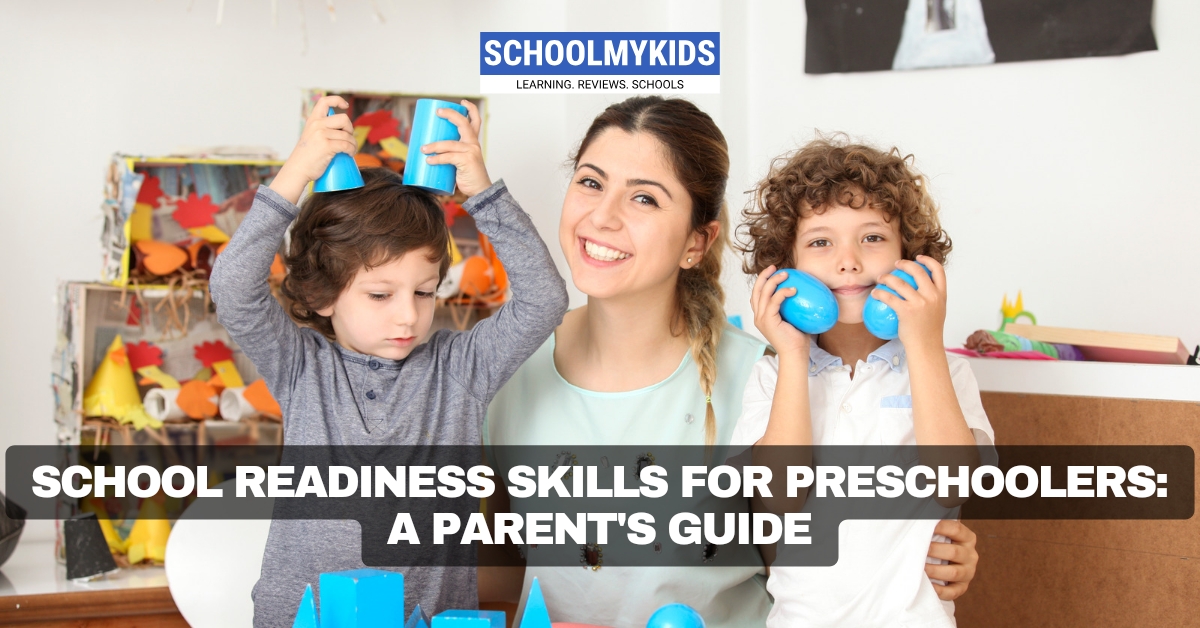Transitioning to preschool is a significant milestone for both children and their parents. As the first step into a structured learning environment, preschool can evoke a mix of excitement and anxiety. Parents often find themselves grappling with concerns about their child's ability to adapt to this new setting. Common worries include whether their child will make friends, follow directions, or manage the emotional shifts that come with being in a classroom without their primary caregivers.
Understanding and preparing for school readiness for preschool can ease these concerns and set the foundation for a successful educational journey.
Understanding School Readiness
School readiness for preschool encompasses a broad range of skills that children need to thrive in a preschool environment. It is not merely about academic knowledge, such as recognizing letters or numbers; rather, it includes social, emotional, and physical skills that support a child's overall development.
Key Areas of Focus
- Social Skills: Children must learn to interact positively with their peers and adults. This includes sharing, taking turns, and understanding social cues. Engaging in playdates or group activities can help children rehearse these skills in a secure environment. Parents can facilitate this by encouraging cooperative games and discussing feelings to foster empathy.
- Emotional Regulation: Managing emotions is crucial for a smooth transition to preschool. Children should learn to express their feelings appropriately and understand when to seek help from adults. Parents can model emotional regulation by discussing their own feelings and demonstrating calming techniques, such as deep breathing or counting to ten when frustrated.
- Communication Skills: Effective communication is foundational for school success. Children should be encouraged to express their needs and thoughts clearly. Reading together and engaging in conversations about daily activities can enhance language skills. Parents can ask open-ended questions to stimulate dialogue and encourage their children to articulate their thoughts.
- Fine and Gross Motor Skills: Physical growth is vital for school readiness. Children should have opportunities to develop both fine motor skills (using scissors or holding a pencil) and gross motor skills (running and jumping). Activities that promote these skills include arts and crafts, outdoor play, and simple sports. Parents can create a routine that incorporates physical activity, making it a fun part of daily life.
- Cognitive Skills: Preschoolers should begin to develop basic cognitive skills like problem-solving and critical thinking. Engaging children in activities that require sorting, categorizing, and counting can foster these skills. Parents can also encourage curiosity by exploring nature or conducting simple science experiments at home.
- Self-Care Skills: Independence is key in a preschool setting. Children should be able to manage basic self-care tasks, such as dressing, using the toilet, and opening their lunchboxes. Parents can rehearse these skills at home by allowing children to choose their outfits or help prepare their meals, fostering a sense of autonomy and confidence.
Supporting Your Child's Transition
To make the transition to preschool smoother, parents can adopt several strategies:
- Establish Routines: Consistent daily routines can help children feel secure and understand what to expect. Parents should create a morning routine with time for breakfast, getting dressed, and packing their bags. This predictability can ease anxiety about the school day.
- Visit the Preschool: Familiarizing children with their new environment can significantly reduce anxiety. If possible, visit the preschool together before the first day. Explore the classroom, meet the teachers, and participate in any orientation activities offered. This exposure can help children feel more comfortable on their first day.
- Read Books About Starting School: Literature can be a powerful tool in preparing children for preschool. Reading stories about characters who experience the first day of school can help children process their feelings and understand what to expect. Discussing the stories can also encourage children to express their own thoughts and feelings about starting school.
- Encourage Independence: While it's natural for parents to want to help their children, fostering independence is crucial. Allow children to try tasks on their own, such as putting on their shoes or cleaning up after playtime. Celebrate their successes to boost their confidence.
Conclusion
Remember, every child develops at their own pace. The most important thing is to provide a loving and supportive environment. By focusing on these essential school readiness for preschool skills, you can help your child transition to preschool with confidence and excitement.








Be the first one to comment on this story.